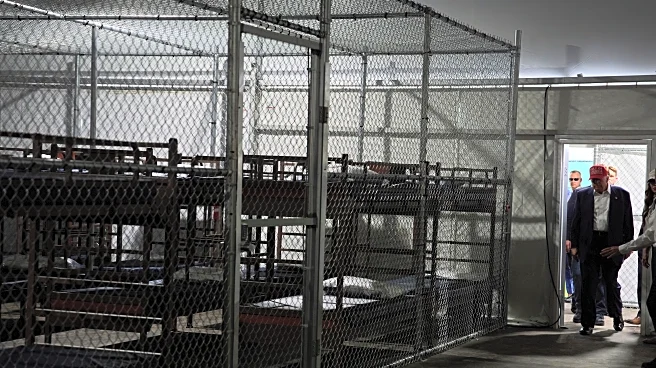What's Happening?
Uvaro, a workforce training platform based in Kitchener-Waterloo, acquired coding school Lighthouse Labs in January. However, both companies have filed for bankruptcy just seven months later. The bankruptcy documents indicate that both companies faced insufficient funding to continue operations, as their forecasted sales pipeline and government contract awards did not materialize as expected. Despite implementing aggressive cost-cutting measures, they were unable to secure the additional liquidity needed to remain solvent. The acquisition aimed to address the AI-augmented job market, but the anticipated growth did not occur. Consequently, both companies have ceased operations, and all employees have been terminated. The trustee firm GlassRatner is managing the transfer of student records and providing updates.
Why It's Important?
The bankruptcy of Uvaro and Lighthouse Labs highlights the challenges faced by companies in the tech education sector, particularly those aiming to capitalize on the AI-augmented job market. The failure to secure expected sales and government contracts underscores the volatility and unpredictability of funding in this industry. This development may impact the workforce training landscape, as these companies were positioned to address skills gaps in emerging technologies. The closure of these institutions could lead to a shortage of trained professionals in AI and coding, affecting tech companies seeking skilled workers. Additionally, the termination of employees adds to the broader economic challenges, potentially increasing unemployment rates in the region.
What's Next?
The trustee firm GlassRatner is currently overseeing the transfer of student records and providing updates on the situation. Stakeholders, including former employees and students, may seek legal recourse or alternative educational opportunities. The bankruptcy may prompt other companies in the sector to reassess their financial strategies and sales forecasts to avoid similar outcomes. Additionally, government agencies might review their contract awarding processes to ensure more reliable support for tech education initiatives.










